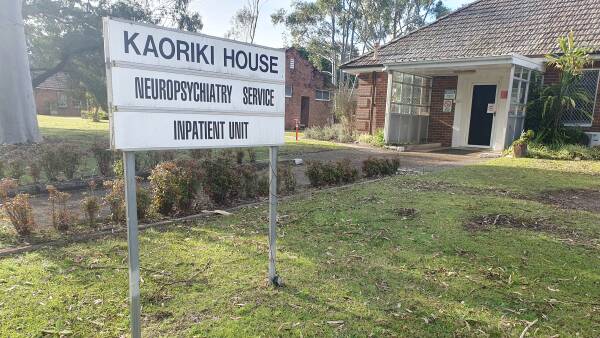
A significant change in mental health care is set to occur as the Kaoriki Unit at Morisset Hospital prepares to close its doors next week. This closure will end a 24-year service that has been vital for many patients with complex mental health needs in New South Wales. Internal documents from Hunter New England Health, obtained by the Newcastle Herald, confirm that the unit will no longer admit patients starting Thursday.
The Kaoriki Unit has provided care for individuals with acquired brain injuries, as well as conditions such as severe autism and Huntington’s disease. According to a source familiar with the situation, the closure is “very sad,” highlighting that it was the only neuropsychiatry inpatient unit within the public health system in NSW. The unit opened in 2001 and was known for its humanistic approach to care, distinguishing itself in a healthcare environment often criticized for its impersonal nature.
Impact on Patients and Staff
Documents indicate that the final neuropsychiatry patient is expected to be discharged in the coming weeks. The closure has raised concerns among staff and community members. One insider expressed dismay at how nursing staff felt “treated like mushrooms throughout this process,” reflecting a sentiment of lack of communication from NSW Health officials. An internal memo acknowledged the “outstanding contributions” of the Kaoriki team, recognizing their compassionate care over the years.
One senior health official noted that the closure has become “inevitable” due to plans for the future of the Morisset site, which include the removal of services rather than its sale. The insider remarked on the potential development of the area, alluding to “Trinity Point 2.0” in the coming years and emphasizing that any planned rezoning would face long delays and conservation challenges.
While no job losses are expected due to this transition, staff have expressed concern about the shift in the healthcare model from a public, equitable system to a more privatized approach. According to internal documents, the Morisset service will pivot to providing inpatient services through enhanced consultation with other units within the health district.
Future of Mental Health Services
The government has indicated that there will be no job losses as a result of the closure, with plans to establish a new neuropsychiatry inpatient unit near other key services in the future. The Morisset Hospital site, which boasts expansive gardens and art pieces, will offer a quiet retreat for the remaining patients for a limited time before the unit’s closure.
The loss of these 12 mental health beds has been described as “shocking” by some community members. Many families have been affected, with numerous patients having received care from the Kaoriki Unit throughout its operation. The facility has been particularly noted for its spacious architecture and the dedication of its staff.
Currently, Morisset Hospital also houses the Kestrel Unit, a 30-bed medium security service that is slated to move to a new mental health centre at the Maitland Hospital campus in 2027. Plans for this transition include 24 low-secure beds, 20 medium secure beds, and 20 high-support beds. However, the future of this project is now in question due to local community objections regarding the integration of forensic patients into the new facility.
The government has stated that planning documents for the Maitland project were exhibited for public feedback in March-April 2025, with construction timelines pending the appointment of a builder.
Hunter New England Health has been reached for comments regarding the closure and future service plans, but responses are still awaited as the community grapples with the implications of these changes.






